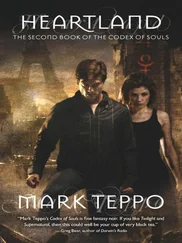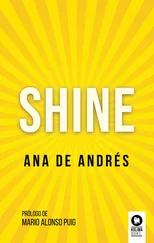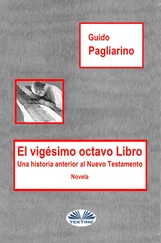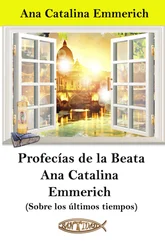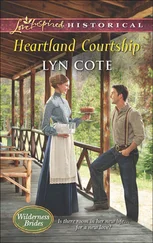I was not ashamed of using Franck’s music for my own tawdry ends. Only of being found out by the Big White Eye, whether Cyclopean (attached to the flesh and blood of individuals) or diffusely societal. However, my ultra-secret bolero triggered such shame and fear that I did not even want myself to know that I was listening to it. Decoupling sense and consciousness was a Shangri-La specialty: we were all born with that gift, although Rafael and I excelled at it. This little song had to be decoupled for security reasons: it unveiled my spic soul. If the knowledge that you listened to it—or even knew that it existed—fell into the wrong hands, you could be squashed. I kept the bolero recording hidden under a loose floorboard at the bottom of my closet, not even trusting my parents, or my grandmother, or the Cohens with my secret. It would have given them the same intimate knowledge of me that I had of them. They used to listen to that bolero when I was little, but then they stopped, because it made the men sad, and the women smile at them indulgently to hide their even deeper sadness.
If I could have told McCabe about the bolero that evening, confessed that there was something even more shameful and inappropriate than the Franck symphony. If I had played it for her then, would she still have found the symphony “too intimate,” and would that have changed anything because removing even a tiny cog alters the flow of events, as Hollywood has been warning us for two centuries? I did not have the choice that night, because I had forgotten the bolero. It just came back to me a moment ago in this cold, dusty landscape in which the underside of a mattress is my last sky. I am listening to it in my mind right now.
The house was silent the next afternoon when I woke up. There was no lunch basket by my door; no one came when I rang my hospital bell or yelled. And the phone by my bed was dead. Outside a storm was raging, a typical Elmiran Thanksgiving storm—a North Atlantic gale with its black skies, brutal galley winds, and forty-foot waves, which central casting had successfully adapted to the heartland.
“A Thanksgiving message from El Jefe ,” Ezequiel Cohen bellowed every year in Spanish, pointing upward with his drippy, buttery corn on the cob, and waiting the required three beats before the punch line: “You’re all in the same boat!” Then, a theatrical aside in broken English: “’Cept dat soma yous travel firs class!” Everyone, even Genoveva who never laughed at her husband’s jokes, would crack when Ezequiel said “yous” in what he called his Little Sambo accent. Our Negro neighbors down the road couldn’t get enough of it. Ezequiel was asked to do the Sambo in their front yard at least once a week.
In my first year and only year in college I found out that all this was wrong. I lectured my parents, both of whom agreed it was awful while shuffling their feet and avoiding my gaze. I slammed the kitchen door on their Stepin Fetchit noses. When I tried to force my mother to talk to Ezequiel, she stared at me as if I were a slimy, green creature from outer space, the first such stare in a line of thousands that would stretch onward for the next two decades, until she died, well before her time. I considered approaching Rafael. He must have heard an even harsher judgment at his college about his father’s hobby. After all, he was not going to backward Elmira County Community College like I was, but to—gasp!—Harvard. On a full scholarship, complemented by assorted little grants which he kicked back to his endemically hand-to-mouth parents.
I did not envy Rafael, then or now. He was a genius. He would have been Mozart if he had been born with musical genes. More importantly: he was a good son, and remained so to the end. That was his biggest accomplishment. He made us proud. His triumphs were ours. He deserved the very best in life. That was the prevailing wisdom in both our families, to which I subscribe to this day. I never spoke to Rafael about his father’s Little Sambo deviationism, afraid to upset the delicate mechanism of genius and ruin our only future claim to fame. There was nothing delicate about squat, dark, meaty, wide-chested Rafael, who never missed a class, or a chance to stuff himself. His body was just the physical envelope. His mind, able to grasp advanced math while mine could not even understand a simple equation, seemed like the mechanism of Monsieur de la Trouille’s automaton, frail under the weight of complexity.
The last time I saw Rafael’s father alive, he was about to perform Little Sambo for three Negro generations in their front yard. The grandmothers and mothers sitting in their rocking chairs, the men leaning against the porch pillars in small knots, elegant and sullen, the children perching on the steps, all wearing their Sunday best, including shiny new shoes, because they had just returned from church. Ezequiel opened his mouth. The men doubled up with laughter. The women held their shaking bellies or clutched their hearts, fanning themselves faster and whispering in each other’s ears, each whisper triggering a fresh wave of laughter across the porch. The children shrieked, clapped, and pointed at Ezequiel in his frayed, but immaculately clean and starched school janitor’s uniform, which he always wore in civilian life. Ezequiel, whose only intelligible words in English were Little Sambo’s. Puppet or puppeteer? He sure made them laugh.
Lightning struck so close that a monstrous boom shook the Judge’s house and the sky lit almost simultaneously. The lights blinked. The boom echoed for several more seconds with the power and malice of an earthquake aftershock. I wheeled myself away from the window. I had once seen a windowpane shatter in our house during a storm like this. In the intense light, I saw McCabe’s leased Land Rover, our only vehicle, parked on the driveway.
The Judge’s studio, which I occupied, was slightly elevated above the rest of the ground floor. To reach the living room, the kitchen, the staircase leading to McCabe’s rooms, and the front and back doors, I had to go down three wide steps. I’d never make it in the wheelchair. I would have to walk. I considered keeping the bandages to cushion my feet. The image of bloody pulp oozing from inside them made me change my mind. I peeled them off slowly, afraid of what I would find. I had not yet seen my frostbitten feet. When McCabe or the doctor tinkered with them I always looked away. My feet were whiter than the rest of my body, an unnatural white with a pinkish hue like white baby buttocks in a diaper ad. They also seemed smaller, though my toes were still painfully swollen. I would have to walk on the balls of my feet, lifting each up and down, clubfoot-style, careful not to roll them forward. I grabbed the Judge’s letter opener, the only weapon in the room, and wheeled myself to the edge of the first step. McCabe could be unconscious, or dead, from natural or unnatural causes. Petrona could have been caught in the storm and forced to go back home. Or a burglar could have killed them both. I did not want to believe McCabe could have left. Wasn’t the Land Rover still in the driveway?
I pushed myself up on the wheelchair armrests, set the balls of my feet down, and then released my arms. The pain was blinding. When I came to, I was at the bottom of the steps. I must have collapsed and rolled down. My arms were bruised, but my nose was intact. Another blow to it and I would be exhibited as a descendant of the australopithecine. When I recovered, I fell on my knees, not to thank God, but to crawl on them. Luckily, crawling comes naturally to spics. Didn’t it win José Ferrer an Oscar last century? I wished I had had his Lautrec kneepads. I left bloody strips of knee skin on the floor. I think of José Lautrec now, but that day my model was not him, but Saint Lazarus and the thousands who walked on their knees to the old leprosy colony at El Rincón, in my parent’s native island, where he has a sanctuary. My grandmother was a dyed-in-the-wool, absolutist Deist. She hated priests, nuns, pastors, santeros , and all other intermediaries as fervently as she believed that there was Something Big Up There. I don’t believe in miracles, she said, and most of those saints and miracles we hear about are frauds. However, God is great and he does sometimes grant especially good people the power to work miracles, not thousands or hundreds of miracles, but one here or there. Saint Lazarus was one of these. But not all cures attributed to him are true. Ten percent, maybe—the other “cured” are lying or under the power of suggestion. People like to fool themselves. That is why the power of suggestion is so dangerous, she warned me.
Читать дальше



